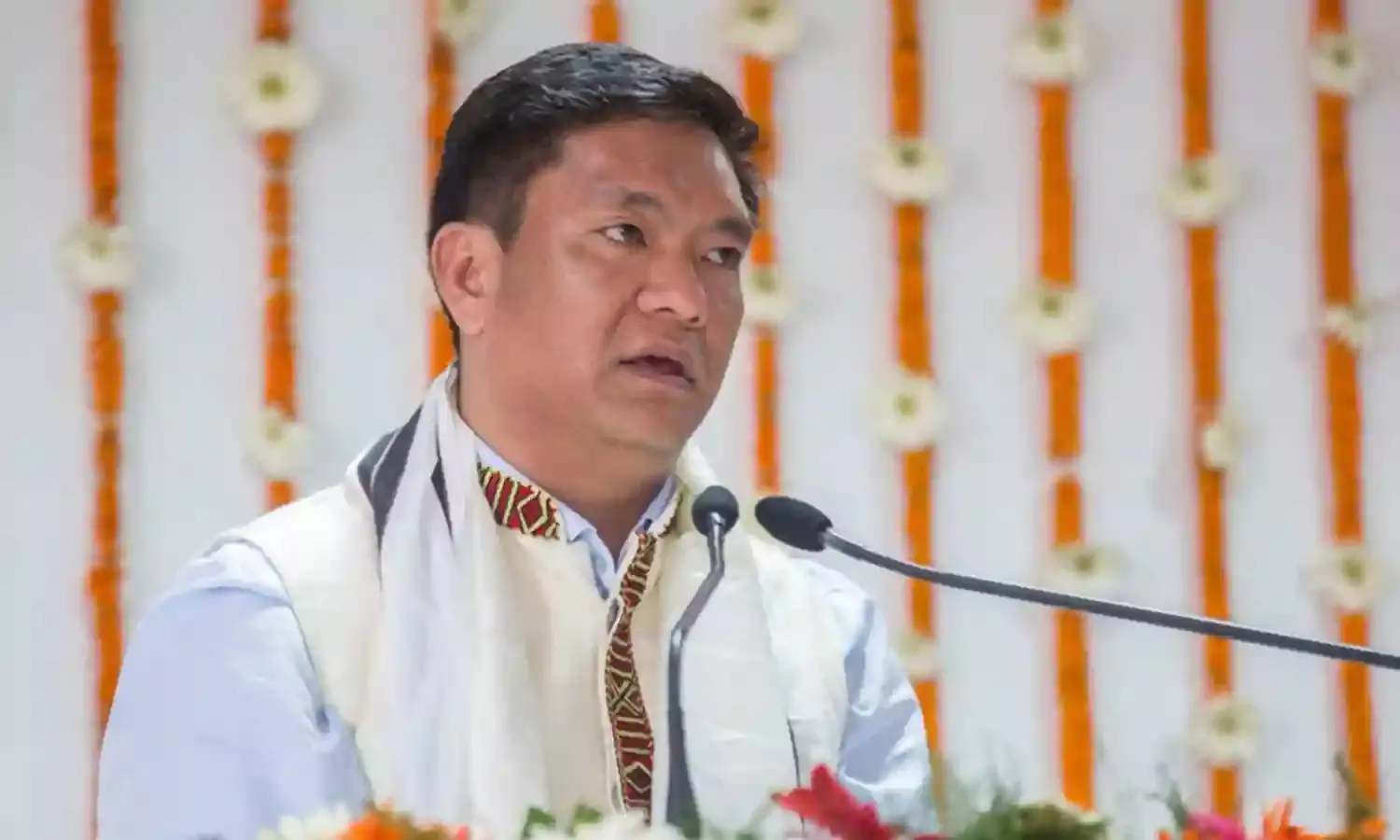Arunachal Pradesh: House Divided on Panchayat Poll Criteria
The irony of the day was not lost on one legislator at least.

ITANAGAR: With Chief Minister Pema Khandu pushing for ‘party-less’ panchayat elections in Arunachal Pradesh, the legislative assembly stood a divided house with opposition to the proposal coming from a number of BJP MLAs.
The chief minister has been making calls for holding rural elections on a non-party basis and had said in November last year that ‘many genuine and capable’ leaders may not get the chance to contest panchayat elections if they are held along party lines.
During a symposium on the issue last December, organised by the Arunachal Press Club, representatives from various political parties, civil society organisations, and rural leaders voiced their differing opinions.
Most recently in February, Khandu said that an all-parties meet will be convened to discuss the feasibility of the issue.
The chief minister and others in support of the move have often cited Gujarat as an example and said that such a system will curb expenses.
At the inaugural day of the Budget session here on Monday, it was the Congress MLA from Pasighat West, Ninong Ering, who moved a ‘short duration discussion’ on the “No Party System for Panchayat Election”.
Ering said that removing the party system at the panchayat levels will help curb expenses and bring down violence, citing Bengal as an example where violence during elections have become commonplace.
He also said that at times incapable people are given the party ticket to contest the polls.
The former Lok Sabha MP was candid in his admission that the panchayat elections incur huge expenses.
“Where will the money come from to finance each candidate with 20 lakh for each panchayati raj segment,” he said, before adding that the party heads will not do so.
“Will Sonia ji and Rahul ji give that much money? No,” he said.
Stating that he was expressing his personal opinion on the matter, he concluded that he pities the chief minister and deputy chief minister on the issue.
Incidentally, it was his father, former Union Minister late Daying Ering who headed the Daying Ering Committee that submitted its report to the Governor of Assam on 4 January 1965 with approximately 50 recommendations relating to local self-government in the then-North East Frontier Agency (NEFA) as prevalent in the rest of the country.
Arguing against the proposal, BJP MLA from Taliha constituency, Nyato Rigia said the disadvantages far outweigh the advantages, and that elections act as a show of strength for political parties.
In fact, Rigia slammed Ering for taking a stance in support of non-party panchayat elections.
“If there are five members from your party who want to contest elections, your expenses will increase,” he said.
He also questioned why Ering was raising the issue now, asking his ‘badey bhai’ “what apprehension do you have in fighting from the party”.
“In all these years you (Ering) have never spoken about this issue but are now supporting it,” he said.
Referring to Prime Minister Narendra Modi’s stated aim for ‘Congress mukt Bharat’, Rigia said that as a BJP MLA, it was his duty to work towards that goal.
Another BJP MLA, Ojing Tasing from Pangin constituency, also voiced his support for party-based election but trod carefully with his words.
“Villagers are unaware of the policies and schemes introduced by the prime minister and our ‘karma yogi’ chief minister. It is us who must inform them,” he said, adding that no one will want that they do the work and not get the credit.
A number of other BJP MLAs stood against the chief minister’s proposal during the discussion (who was not present in the well of the house at the time).
While some BJP and alliance partner National People’s Party (NPP) MLAs did support the idea, three of the four Congress MLAs who were present during the discussion also sided with the proposal.
Apart from Ering, two Congress MLAs who were present at the time- Lombo Tayeng and Wanglin Lowangdong -said they supported such a move.
Congress house leader and former chief minister Nabam Tuki did not speak.
The irony of the day was not lost on one legislator at least.
NPP legislature party leader, Mutchu Mithi noted that it was primarily the opposition party that was supporting the proposed idea.
Mithi questioned how the Congress was able to rule the state for several years and if the BJP was trying to do the same now, and added that the issue requires more discussion.
The first panchayat election in NEFA was held in 1969. The last elections in the year 2008 and 2013 were held under the provisions of The Arunachal Pradesh Panchayati Raj Act, 1997, which was based on the 73rd Amendment Act, 1992 of the Constitution.
The Amendment enables a state having less than 20 lakh population not to have the intermediate level. As per the last Census of 2011, the state has a population of 13.84 lakh.
In 2018, the state legislative assembly passed a bill to remove the Anchal Samiti, the intermediate level of the three-tier panchayati raj system, and set up a two-tier system.
The change in the structure has caused a delay in the panchayat election. The term of the last panchayat body expired in April 2018.


